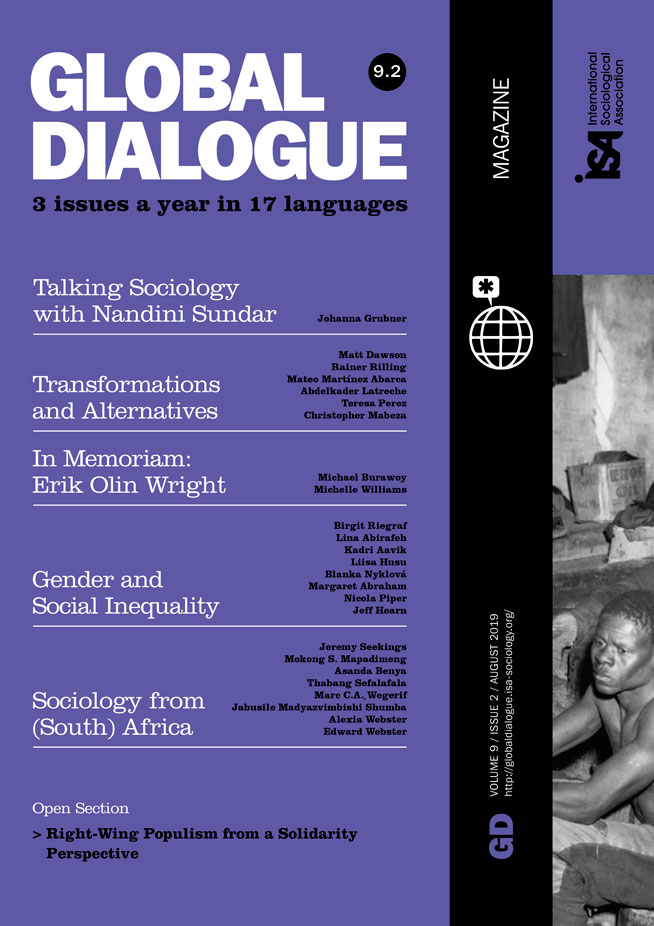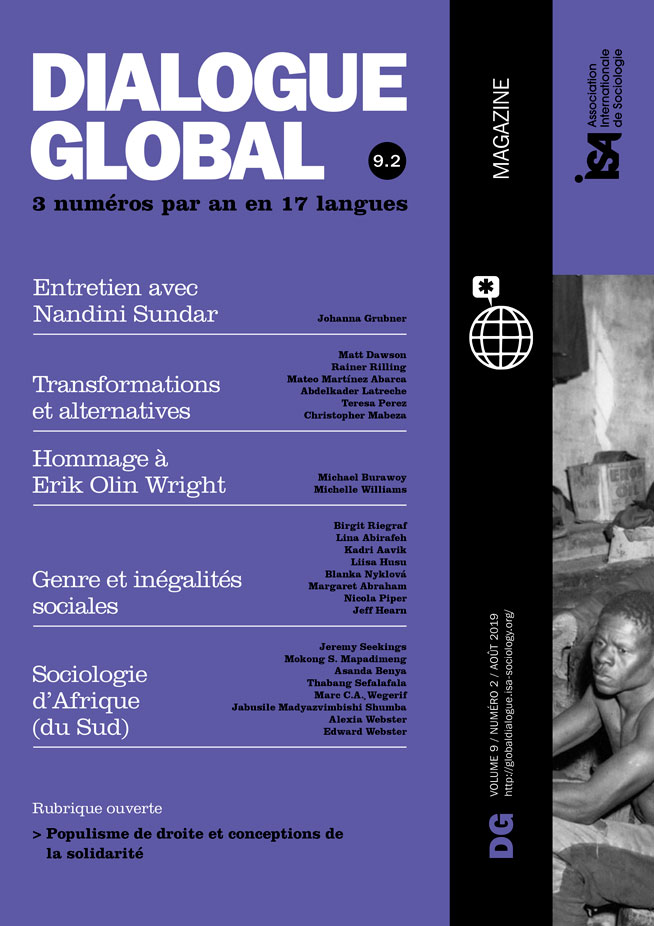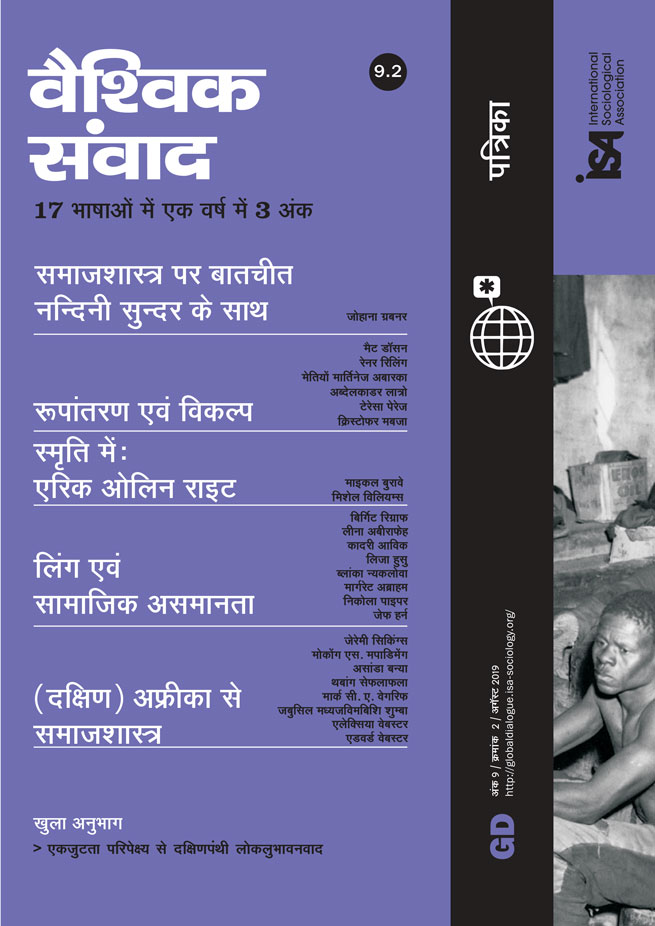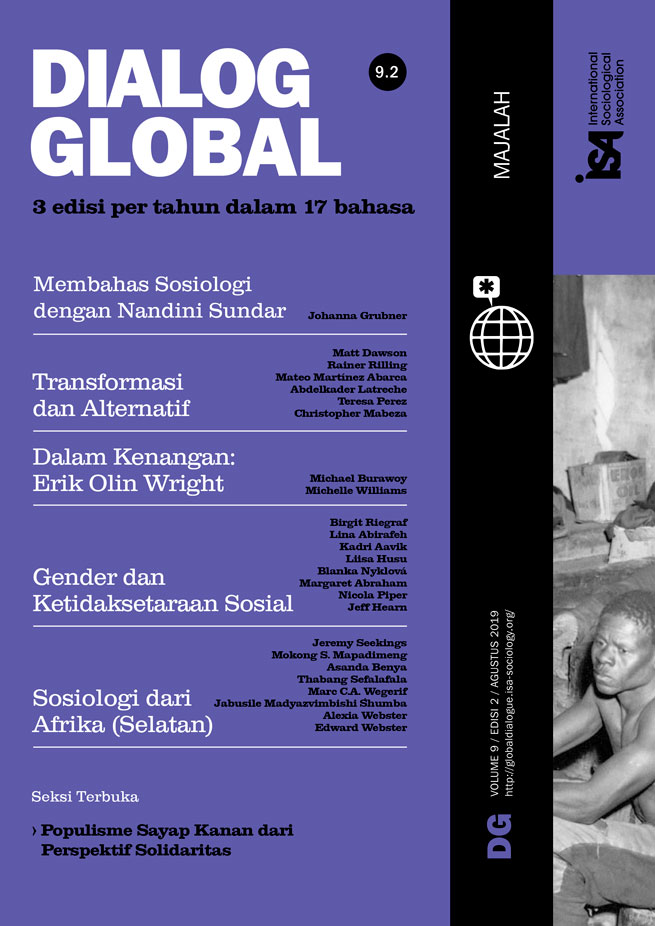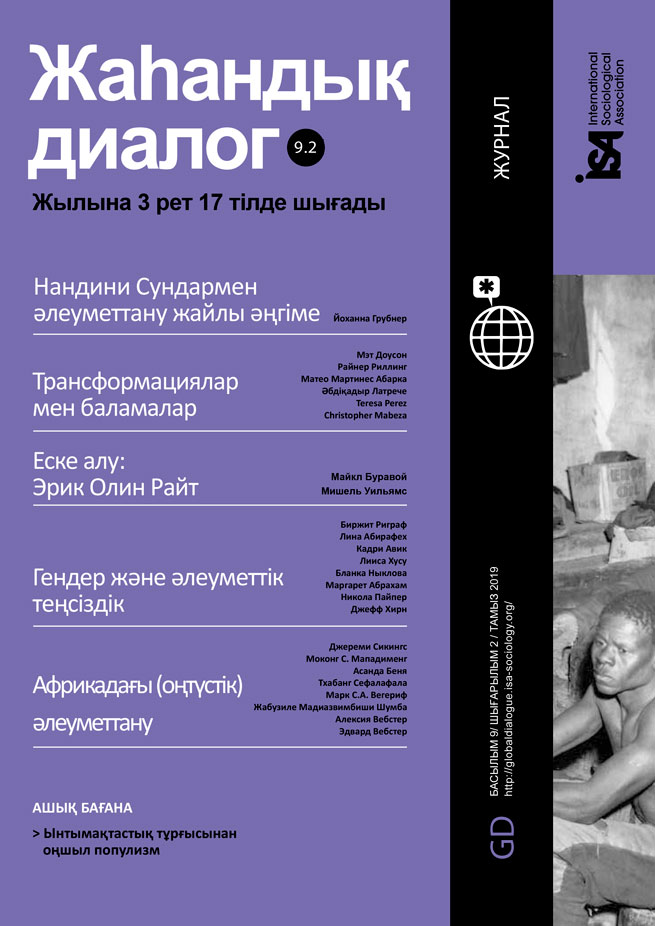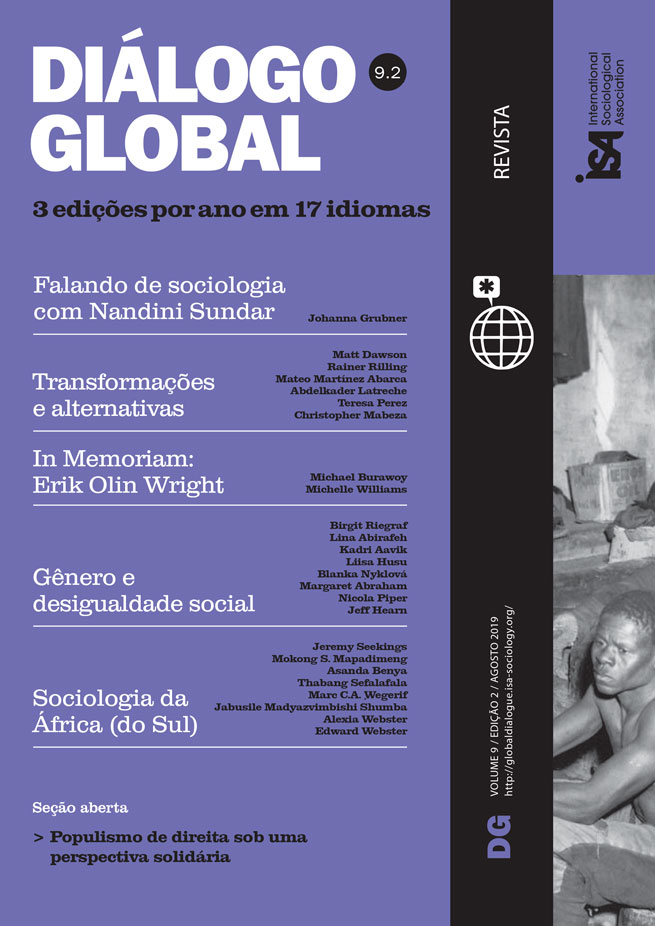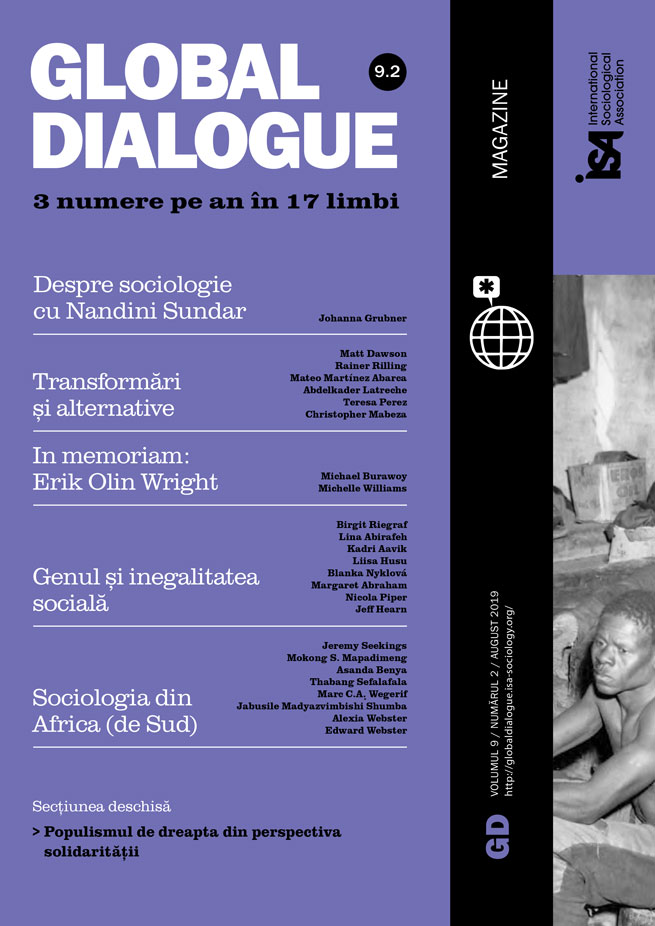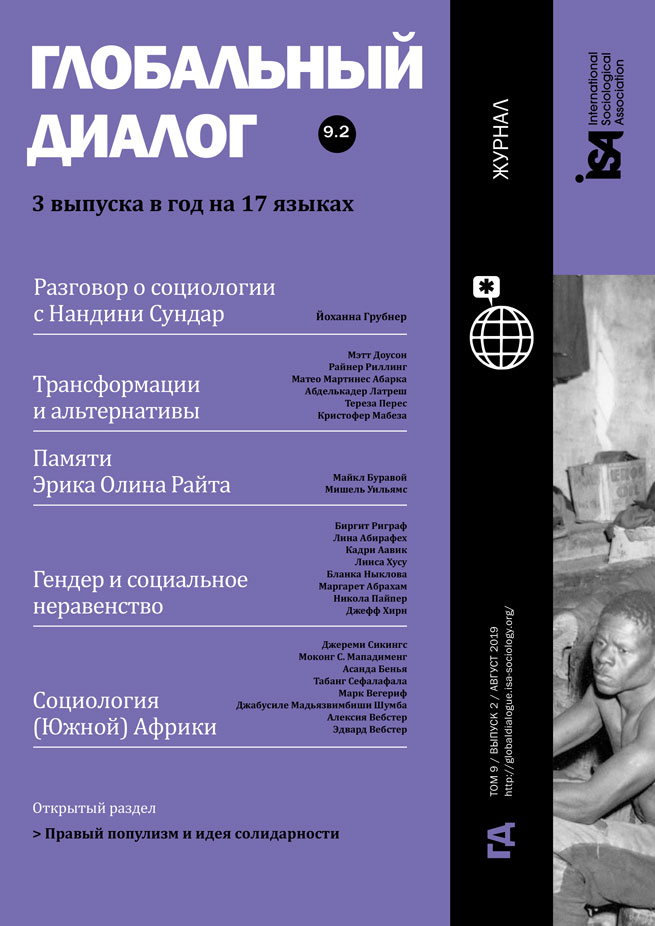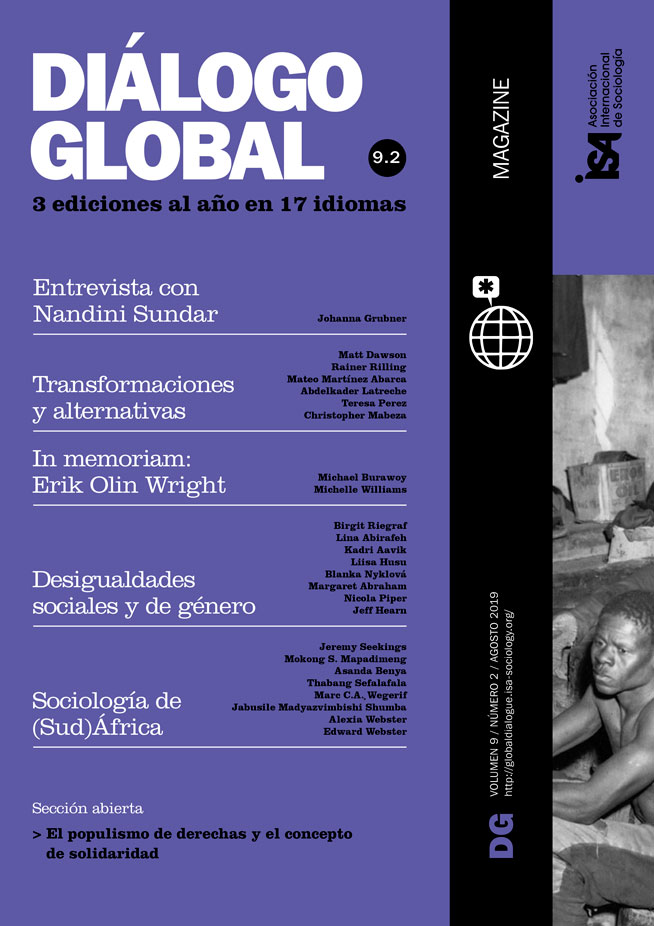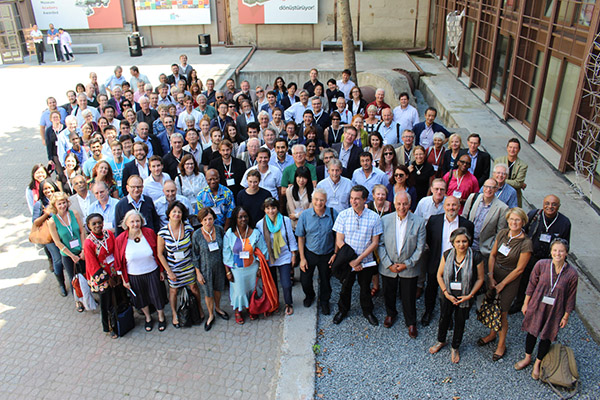The International Panel on Social Progress (IPSP, https://www.ipsp.org/) was conceived around 2012 and early 2013, as a large independent non-governmental social science operation, paralleling in some ways the Intergovernmental Panel on Climate Change (IPCC). The idea was discussed at the “Think Global” conference in May 2013 (https://penserglobal.hypotheses.org/35), and then officially started in summer 2014, with the first meetings of the steering committee and the scientific council shortly after. The key leaders of this whole process have been Marc Fleurbaey (Princeton University) and Olivier Bouin (RFIEA), with the support of many leading social scientists such as Amartya Sen, Helga Nowotny, Ravi Kanbur, and Elisa Reis.
The overall aim has been to: produce comprehensive coverage of the dimensions of social progress; make up-to-date social science more accessible and relevant; feed social actors and citizens, including but not only governments, with ideas about possible futures; influence public debates; and increase interest in social justice and long-term prospective thinking among scholars.
It was in April 2015 that I received an invitation to the first large-scale author congress, with up to 200 leading social scientists from across the world, held in Istanbul in August 2015. The invitation was to join one of the collective sub-groups or chapters, entitled “Pluralizing family, gender, sexuality.” As it happens, between the invitation and the event, “Pluralizing family, gender, sexuality” became renamed as “Pluralization of families,” with gender being “mainstreamed.” This meant some rejigging of who was in which sub-group; eventually I ended up in the penultimate chapter, “The multiple directions of social progress: ways forward,” as well as working to form a cross-cutting group on Gender (more on that soon). A second large congress was held in Lisbon in January 2017.
In the published IPSP texts there are over 282 authors, including contributing authors. With various committee and scientific board members, the total rises to about 350. Initially, political scientists made up about a quarter of the authors; sociologists and economists each just under a fifth; the remainder were across other social sciences, with a few from the humanities. A majority was from Europe and North America, with a substantial minority from across the globe; about 60% were identified as male.
Key IPSP principles included: working in a bottom-up, peer-based collegial way; non-binding support and funding from c.50 partner funders, universities, and other institutions, independent of governments and lobbyists; high value given to pluridisciplinary approaches and stakeholder feedback. Authors were encouraged to handle disagreements with humility and respect, agreeing to disagree and acknowledging the limits of expertise. IPSP aimed to be conditionally prescriptive: “if your objective is this, then the best way is that.” Key elements of social progress identified were: equal dignity, basic rights, democracy, the rule of law, pluralism, well-being, freedom, non-alienation, solidarity, esteem and recognition, cultural goods, environmental values, distributive justice, transparency, accountability.
The outcome of this work has been three large collective volumes, Rethinking Society for the 21st Century: Report of the International Panel on Social Progress, along with a multi-authored single volume, A Manifesto for Social Progress: Ideas for a Better Society, all from Cambridge University Press. IPSP authors are also active in many fora, e.g. T20 (the international think-tank network of the G20 which met in Germany in 2017 and Argentina in 2018), The Conversation, journal special issues, and a docu-film: https://www.instagram.com/a_new_society/.
Some idea of the spectrum of concerns is seen from the broad chapters in the three volumes: Volume 1. Socio-Economic Transformations: Social Trends and New Geographies; Social Progress: A Compass; Economic Inequality; Economic Growth, Human Development, Welfare; Cities; Markets, Finance, Corporations; Future of Work; Social Justice, Well-Being, Economic Organization; Volume 2. Political Regulation, Governance, and Societal Transformations: Paradoxes of Democracy and Rule of Law; Violence, Wars, Peace, Security; International Organizations, Technologies of Governance; Governing Capital, Labor and Nature; Media and Communications; Volume 3. Transformations in Values, Norms, Cultures: Cultural Change; Religions; Pluralization of Families; Global Health; Education; Belonging; Multiple Directions of Social Progress; The Contribution of the Social Sciences to Policy and Institutional Change. For each topic, the current situation, historical and prospective trends, directions of change inspired by social justice, and drivers and barriers for such change are examined. Cross-cutting topics are: Science, technology and innovation; Globalization; Social movements; Health; and as noted, Gender. The cross-cutting gender group commented on chapter drafts, and produced a checklist advising chapter authors on addressing gender, including such necessary points:
- gender relations, gender power relations, and gendering processes, not only gender as a noun, variable, or specific gender categories;
- gendered construction and differential gender power of both women and femininities, and men and masculinities;
- interpreting gender as meaning “women and men” may downplay gender diversity, further genders and LGBTIQ+ positions;
- the very different ways gender relations are organized in and across different societies, as generalizations across gender regimes may be flawed;
- children, “girls” and “boys” not to be downplayed;
- care and consistency in distinguishing “gender equality” and “gender equity”;
- gendering processes and gender regimes in what may be represented as “gender-neutral” or “non-gendered” arenas, e.g. international relations or transportation;
- sexuality, including non-normative sexualities, not reproducing heteronormativity;
- futures of gender and sexuality, e.g. implications of new technologies;
- gender constructed intersectionally, at all levels, from identity to global social relations.
Overall, the IPSP Report has sought to gather state-of-the-art knowledge about the possibilities for structural social change, and synthesize knowledge on the principles, possibilities, and methods for improving societal institutions. Many recommendations have been made, for example, from the penultimate chapter alone, on: overcoming obstacles to sustainable social progress; expanding non-capitalist forms of market activity and the role of the state or community in meeting human needs; building vibrant cooperative market sectors; conversion of capitalist firms into cooperatives and worker takeovers; democratizing large capitalist corporations; unconditional basic income; universal care services; naming and changing the powerful and the privileged in institutions and policy; building transnational, inter-organizational alliances for policy development with learning from the Global South; extending equality agendas into ”unmarked” and transnational policy arenas; democratizing democracy; and participatory budgeting.
Jeff Hearn, Hanken School of Economics, Finland, Örebro University, Sweden, and University of Huddersfield, UK, and member of ISA Research Committee on Women, Gender, and Society (RC32) <hearn@hanken.fi>









